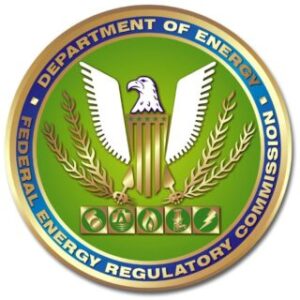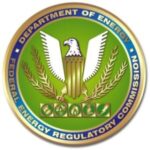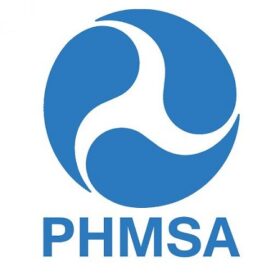
The American Gas Association (“AGA”), the American Public Gas Association (“APGA”), and the Interstate Natural Gas Association of America (“INGAA”) (collectively, “the Associations”) respectfully request that the Federal Energy Regulatory Commission (“Commission”) clarify the date interstate natural gas pipelines must implement the revised North American Energy Standards Board (“NAESB”) standards as required by Order No. 809.4
The AGA, founded in 1918, represents more than 200 local energy companies that deliver clean natural gas throughout the United States. There are more than 71 million residential, commercial and industrial natural gas customers in the U.S., of which 94 percent — more than 68 million customers —receive their gas from AGA members. AGA is an advocate for local natural gas utility companies and provides a broad range of programs and services for member natural gas pipelines, marketers, gatherers, international gas companies and industry associates. For more information, please visit www.aga.org.
APGA is the national association for publicly owned natural gas distribution systems. There are approximately 1,000 public gas systems in 37 states, and over 700 of these systems are APGA members. Publicly owned gas systems are not-for-profit, retail distribution entities owned by, and accountable to, the citizens they serve. They include municipal gas distribution systems, public utility districts, county districts, and other public agencies that own and operate natural gas distribution facilities in their communities.
INGAA is a trade organization that advocates regulatory and legislative positions of importance to the natural gas pipeline industry in North America. INGAA is comprised of 25 members, representing the vast majority of the interstate natural gas transmission pipeline companies in the U.S. and comparable companies in Canada. INGAA’s members operate approximately 200,000 miles of pipelines, and serve as an indispensable link between natural gas producers and consumers.
The Associations urge the Commission to clarify that the new standards will become effective for the Gas Day that begins at 9:00 a.m. Central Clock Time (“CCT”) on April 1, 2016, as set forth in the attached Appendix A and Appendix B. We also request that the Commission clarify that shippers with the right to recall capacity during the Intraday 2 Cycle for capacity release transactions entered into prior to April 1, 2016, for periods that include April 1, 2016, and terminate thereafter, shall have Intraday 2 and Intraday 3 recall rights beginning on April 1, 2016. To the extent that other implementation issues arise, the industry will work through NAESB to resolve such issues promptly. Finally, given the amount of work that needs to be done to ensure a smooth implementation of the new NAESB standards, we urge the Commission to act expeditiously on the clarifications requested herein.
In the final rule, the Commission amended its regulations at Part 284 to incorporate by reference NAESB’s revised standards, which provide that the nomination deadline for the Timely Cycle will be 1:00 p.m. CCT, with notice to shippers of scheduled quantities at 5:00 p.m. CCT, and the nomination deadline for the Evening Cycle will remain at 6:00 p.m. CCT, with notice to shippers of scheduled quantities at 9:00 p.m. CCT.5 The Commission also incorporated by reference NAESB’s revised standards, which provide three intraday nomination cycles, at 10:00 a.m. CCT, 2:30 p.m. CCT, and 7:00 p.m. CCT.6 The Commission required interstate natural gas pipelines to implement the revised NAESB standards in the final rule beginning on April 1, 2016.
The Associations continue to support the Commission’s efforts to improve coordination between the electric and natural gas industries. We appreciate the Commission’s consideration of the recommendations made in our recent pleadings in this proceeding as reflected in Order No. 809. We support the new gas scheduling timeline; however, we are concerned that the compliance date for interstate natural gas pipelines to observe the revised NAESB standards is ambiguous and may lead to confusion during implementation.
The April 1, 2016 implementation date does not explicitly define whether the changes to the nomination deadlines should be implemented for the start of the Gas Day that begins at 9:00 a.m. CCT on April 1, 2016, or whether the changes should apply to the nomination deadlines that occur on April 1, 2016, for the Gas Day that begins at 9:00 a.m. CCT on April 2, 2016. The difference in these scenarios is not trivial. Parties implementing for Gas Day April 1, 2016, would set the Timely Cycle nomination deadline on March 31, 2016, at 1:00 p.m. CCT, while others who implement on the calendar day April 1, 2016, would maintain the Timely Cycle nomination deadline at 11:30 a.m. CCT on March 31, 2016. This mismatch could adversely affect scheduling and confirmations as well as the capacity release timeline potentially yielding chaotic results in the energy markets.
We believe it is essential that the entire industry implement the same scenario. We therefore urge the Commission to clarify that implementation will become effective for the Gas Day that begins at 9:00 a.m. CCT on April 1, 2016. Under that scenario, the Timely and Evening Cycle nomination deadlines on March 31, 2016, for the April 1, 2016 Gas Day will be 1:00 p.m. CCT and 6:00 p.m. CCT, respectively, and the new nomination deadlines for the intraday cycles will become effective on April 1, 2016. Appendix A, attached hereto, shows how the nomination deadlines will be implemented.
With respect to the capacity release timelines, the nomination deadlines will also be implemented on March 31, 2016, as follows. A new capacity release timeline will apply on March 31, 2016, for biddable capacity releases. Biddable releases effective April 1, 2016, and thereafter, will use the new nomination deadlines (day-ahead), and biddable releases effective March 31, 2016, will use the existing nomination deadlines (same day). For non-biddable capacity releases and recalls, the existing timelines will apply on March 31, 2016, and new timelines will begin on April 1, 2016, for releases and recalls effective April 1, 2016. Appendix B, attached hereto, shows how the capacity release timelines will be implemented. Accordingly, we respectfully request that the Commission clarify that the new standards will become effective for the Gas Day that begins at 9:00 a.m. CCT on April 1, 2016, with the nomination and capacity release deadlines as set forth in Appendix A and Appendix B attached hereto.
Further, when the revised NAESB nomination standards become effective, releasing shippers will be able to recall capacity at a new Intraday 3 Cycle. While the capacity release timeline will change contemporaneously, it is not unduly speculative to presume that long-term capacity releases that span a period before and after April 1, 2016, will be posted, bid upon and released well in advance of April 1, 2016. Indeed, such capacity releases may already be in place. The Associations seek clarification that capacity release recall rights for the Intraday 3 Cycle will be available for releases entered into prior to April 1, 2016, for periods that include April 1, 2016, and terminate thereafter. Currently, releasing shippers can specify whether releases are recallable and select which cycles are subject to recall rights. In cases where parties to a capacity release transaction today have agreed that the capacity is recallable at the Intraday 2 Cycle, the intent of the transaction appears to allow the recall of capacity effective for the last intraday cycle of the day. When the Intraday 3 Cycle becomes available, such releases should be transitioned automatically to permit recalls at the Intraday 3 Cycle without further action by the parties to the capacity release transaction.
Finally, the new intraday cycles will yield different fractions of a Gas Day for which scheduled quantities have already flowed.8 The Associations agree that NAESB should examine the extent to which changes to the intraday cycles may result in rounding issues associated with the EPSQ and Elapsed Prorated Capacity calculations, and determine what standards should be developed, if any, to resolve such issues. In light of the work that needs to be done to ensure a smooth implementation of these new NAESB standards, we urge the Commission to act expeditiously on the clarifications requested herein.
WHEREFORE, for reasons set forth above, the Associations respectfully request that the Commission clarify that the new standards will become effective on the Gas Day that begins at 9:00 a.m. CCT on April 1, 2016, as set forth in the attached Appendix A and Appendix B; and that shippers with the right to recall capacity during the Intraday 2 Cycle will also be able to recall capacity at the Intraday 3 Cycle for capacity release transactions entered into prior to April 1, 2016, for periods that include April 1, 2016, and terminate thereafter. The Associations also urge the Commission to act expeditiously on the clarifications requested herein.
The current intraday flow times are effective at 8 and 12 hours after the start of the day, respectively, and have Elapsed Prorated Scheduled Quantities (“EPSQs”) based upon 8/24 = .33333333 and 12/24 = .5, respectively. Starting April 1, 2016, Intraday Cycles 1, 2 & 3 will be effective at 5, 9 & 13 hours after the start of the day, respectively, and will have EPSQs based upon 5/24 = .20833333, 9/24 = .375, and 13/24 = .54166666, respectively.
Respectfully submitted,
AMERICAN GAS ASSOCIATION
/s/ Andrew K. Soto
____________________
Andrew K. Soto
Vice President, Regulatory Affairs
American Gas Association
400 N. Capitol Street, NW
Washington, DC 20001
(202) 824-7215
asoto@aga.org
AMERICAN PUBLIC GAS ASSOCIATION
/s/ David Schryver
_____________________
David Schryver
Executive Vice President
American Public Gas Association
201 Massachusetts Ave., NW, Suite C-4
Washington, DC 20002
(202) 464-0835 dschryver@apga.org
INTERSTATE NATURAL GAS ASSOCIATION OF AMERICA
/s/ Joan Dreskin
____________________
Joan Dreskin
Vice President & General Counsel
Interstate Natural Gas Association of America
20 F Street, NW, Suite 450
Washington, DC 20001
(202) 216-5928 jdreskin@ingaa.net
May 28, 2015







